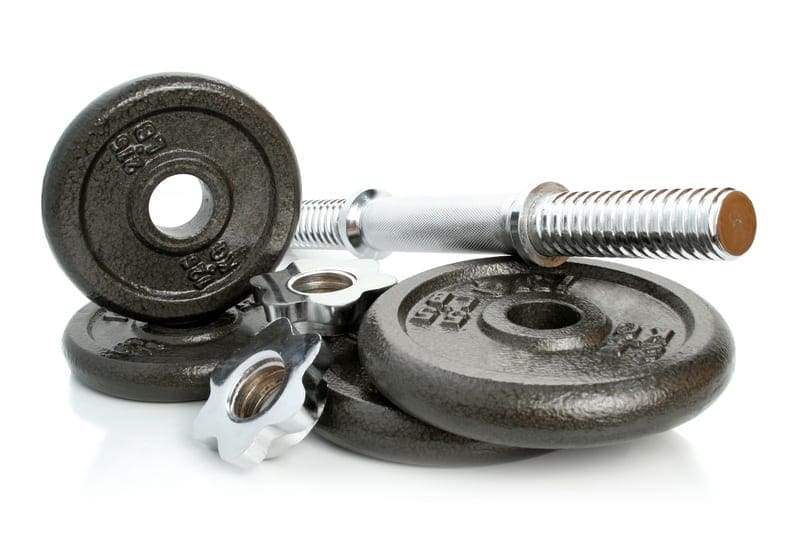Staying hydrated during pregnancy is crucial for the health and well-being of both the mother and the baby. Proper hydration helps to support the growth and development of the baby, maintain healthy levels of amniotic fluid, and prevent common pregnancy discomforts such as constipation and urinary tract infections. In addition, staying hydrated can help to reduce the risk of preterm labor and complications during childbirth.
So, how can pregnant women ensure they are staying properly hydrated? Here are some tips and advice to help maintain optimal hydration levels throughout pregnancy:
- Drink plenty of water: Water is the best and most natural way to stay hydrated. Aim to drink at least 8 to 10 glasses of water per day. Keep a water bottle with you at all times and take sips throughout the day to ensure a constant intake of fluids.
- Monitor urine color: One way to gauge your hydration levels is by checking the color of your urine. Ideally, it should be a pale yellow color. If it is dark yellow or amber, it may be a sign of dehydration and you should increase your fluid intake.
- Include hydrating foods in your diet: Certain fruits and vegetables have high water content and can contribute to your overall hydration. Some examples include watermelon, cucumbers, strawberries, and oranges. Incorporate these foods into your meals and snacks to boost your hydration levels.
- Avoid sugary and caffeinated drinks: While it’s important to stay hydrated, it’s best to avoid sugary and caffeinated beverages as they can have negative effects on both you and your baby. Stick to water, herbal teas, and natural fruit juices instead.
- Set reminders: It’s easy to forget to drink water throughout the day, especially when you’re busy or experiencing pregnancy brain fog. Set reminders on your phone or use a water tracking app to help you stay on top of your hydration goals.
- Listen to your body: Your body is a great indicator of when it needs hydration. Pay attention to signs of thirst, dry mouth, and fatigue. If you’re feeling thirsty, it’s a sign that you need to drink more fluids.
Remember, staying hydrated during pregnancy is essential for both your health and the health of your baby. By following these tips and making hydration a priority, you can ensure a healthy and comfortable pregnancy journey.
Benefits of staying hydrated
Staying hydrated during pregnancy is of utmost importance for both the mother and the baby. Proper hydration has numerous benefits that contribute to a healthy pregnancy and overall well-being. Let’s explore the significance of hydration and its positive effects on expecting mothers and their babies.
First and foremost, maintaining adequate hydration levels helps to support the optimal functioning of the mother’s body. Water is essential for various bodily functions, such as regulating body temperature, aiding digestion, and transporting nutrients to the cells. By staying hydrated, pregnant women can ensure that their bodies are functioning optimally, which is crucial for a healthy pregnancy.
Furthermore, proper hydration plays a vital role in supporting the baby’s development. Water is essential for the production of amniotic fluid, which surrounds and protects the baby in the womb. Amniotic fluid provides cushioning and maintains a stable environment for the baby to grow and develop. By staying hydrated, expecting mothers can ensure that their bodies can produce an adequate amount of amniotic fluid, promoting the baby’s healthy development.
In addition to these benefits, staying hydrated during pregnancy can also help alleviate common discomforts such as constipation and urinary tract infections. Drinking enough water helps to soften stools and prevent constipation, which is a common issue during pregnancy. It also helps to flush out toxins from the body and reduce the risk of urinary tract infections, which can be more prevalent during pregnancy.
Overall, the importance of staying hydrated during pregnancy cannot be emphasized enough. It not only supports the mother’s well-being but also contributes to the healthy development of the baby. By drinking enough water and maintaining proper hydration levels, pregnant women can experience a more comfortable pregnancy and ensure the optimal health of both themselves and their babies.
Recommended daily water intake
During pregnancy, it is crucial for women to stay properly hydrated to support the health and development of both the mother and the baby. The recommended daily water intake for pregnant women varies depending on factors such as activity level, climate, and overall health. However, as a general guideline, it is recommended that pregnant women consume at least 8-10 cups (64-80 ounces) of water per day.
Meeting this recommended water intake may seem challenging, but there are several strategies to help pregnant women stay hydrated. One effective way is to carry a water bottle with you throughout the day, making it easily accessible and a constant reminder to drink water. Another tip is to set reminders on your phone or use an app to track your water intake and ensure you are meeting your daily goal.
In addition to drinking plain water, you can also increase your water intake by consuming hydrating foods and beverages. Fruits and vegetables with high water content, such as watermelon, cucumbers, and strawberries, can be a delicious and refreshing way to stay hydrated. Herbal teas, such as chamomile or mint, can also contribute to your daily water intake while providing additional health benefits.
It’s important to listen to your body’s thirst signals and drink water whenever you feel thirsty. Additionally, pay attention to the color of your urine – if it is pale yellow or clear, it indicates that you are properly hydrated. On the other hand, dark-colored urine may be a sign of dehydration and should be addressed by increasing your water intake.
Remember, staying hydrated during pregnancy is essential for maintaining overall health and well-being. By following the recommended daily water intake guidelines and incorporating hydrating foods and beverages into your diet, you can ensure that both you and your baby are properly nourished and hydrated throughout this special time.
Hydration tips for morning sickness
Dealing with morning sickness can be a challenge for many pregnant women. Nausea and vomiting can make it difficult to keep food and fluids down, which can lead to dehydration. However, staying hydrated is crucial during pregnancy to support the health and development of both the mother and the baby. So, how can you combat morning sickness and ensure proper hydration? Here are some effective strategies:
- Stay hydrated throughout the day: Sip on small amounts of water or clear fluids frequently, rather than trying to drink a large amount all at once. This can help to prevent overwhelming your stomach and reduce the chances of triggering nausea.
- Try ginger: Ginger has long been used as a natural remedy for nausea. Sipping on ginger tea or sucking on ginger candies can help alleviate morning sickness symptoms while providing some hydration.
- Opt for cold or room temperature fluids: Sometimes, the temperature of the fluids you consume can make a difference. Many pregnant women find that cold or room temperature beverages are easier to tolerate than hot ones.
- Avoid triggers: Pay attention to any specific foods or smells that seem to worsen your morning sickness symptoms and try to avoid them. Sometimes, certain triggers can make it more challenging to stay hydrated.
- Experiment with different foods and beverages: If water alone is difficult to consume, try incorporating other hydrating options into your diet. This could include fruit-infused water, herbal teas, clear broths, or even popsicles made from natural fruit juices.
Remember, every woman’s experience with morning sickness is unique, so it may take some trial and error to find what works best for you. Don’t hesitate to reach out to your healthcare provider for additional guidance and support. By finding effective strategies to combat morning sickness while staying hydrated, you can help ensure a healthier and more comfortable pregnancy journey.
Choosing hydrating foods
When it comes to staying hydrated during pregnancy, water is essential. However, there are also many nutritious foods that can help provide hydration and essential nutrients for pregnant women. By incorporating these hydrating foods into your diet, you can ensure that you are getting the necessary fluids and nutrients to support a healthy pregnancy.
One great option for staying hydrated is to include fruits and vegetables with high water content in your meals. Cucumbers, watermelon, strawberries, and oranges are all excellent choices as they are not only hydrating but also packed with vitamins and minerals. These fruits and vegetables can be enjoyed on their own or added to salads and smoothies for a refreshing and hydrating boost.
In addition to fruits and vegetables, consuming foods with a high water content can also help keep you hydrated. Soups and broths, such as vegetable soup or chicken noodle soup, are not only hydrating but also provide essential nutrients. These warm and comforting options can be especially helpful during pregnancy, as they can help alleviate morning sickness and provide much-needed hydration.
Another hydrating food option is yogurt. Yogurt is not only a good source of hydration but also contains probiotics that can promote a healthy digestive system. Opt for plain or Greek yogurt and add fresh fruits or nuts for added flavor and nutrients.
Lastly, don’t forget about the importance of whole grains in your diet. Foods like oatmeal and quinoa can provide hydration while also supplying essential nutrients like fiber and iron. These grains can be cooked with water or milk for added hydration and can be enjoyed as a breakfast cereal or incorporated into meals throughout the day.
Overall, choosing hydrating foods is an excellent way to stay hydrated during pregnancy while also ensuring you are getting the necessary nutrients for a healthy pregnancy. Incorporate a variety of fruits, vegetables, soups, yogurt, and whole grains into your diet to maintain proper hydration levels and support your overall well-being.
Hydration during exercise
Hydration during exercise is crucial for pregnant women as it helps maintain their overall health and well-being. Engaging in physical activity while pregnant can provide numerous benefits, such as improved mood, increased energy levels, and better sleep. However, it is essential to understand the importance of staying hydrated during these exercise sessions to ensure the safety of both the mother and the baby.
When exercising, pregnant women often experience increased sweating, which can lead to dehydration if not properly addressed. Dehydration can cause dizziness, fatigue, and even contractions, posing potential risks to the pregnancy. Therefore, it is vital to take proactive measures to maintain proper hydration levels.
One effective way to stay hydrated during exercise is to drink water before, during, and after the workout. It is recommended to drink at least 8-10 glasses of water per day, but the amount may vary depending on individual needs. Pregnant women should listen to their bodies and increase their water intake accordingly, especially during exercise sessions.
In addition to water, consuming electrolyte-rich drinks can also be beneficial during exercise. These drinks help replenish the body’s electrolyte balance and provide essential minerals such as sodium and potassium. However, it is important to choose beverages that are low in sugar and avoid those with artificial additives.
Another way to ensure hydration during exercise is to pay attention to the timing and intensity of the workout. Pregnant women should avoid exercising in extreme heat or high humidity, as these conditions can increase the risk of dehydration. It is also advisable to take frequent breaks and listen to the body’s signals. If feeling lightheaded or experiencing any discomfort, it is essential to stop exercising and rest.
Furthermore, wearing appropriate clothing and footwear can contribute to maintaining hydration levels during exercise. Opt for breathable and lightweight fabrics that allow sweat to evaporate, helping to regulate body temperature. Comfortable shoes with proper support can also prevent excessive strain on the feet and joints.
Lastly, pregnant women should consult with their healthcare provider before starting any exercise routine. They can provide personalized recommendations based on individual health conditions and stage of pregnancy. It is important to choose exercises that are safe and suitable for the specific needs of pregnant women.
Overall, staying hydrated during exercise is vital for pregnant women to ensure a healthy and enjoyable workout experience. By understanding the importance of hydration, drinking water and electrolyte-rich beverages, paying attention to timing and intensity, and seeking professional guidance, pregnant women can safely exercise while maintaining optimal hydration levels.
Signs of dehydration during pregnancy
Recognizing the signs of dehydration during pregnancy is crucial for the health and well-being of both the mother and the baby. Dehydration can occur when the body loses more fluid than it takes in, leading to a lack of water and essential electrolytes. It is important to be aware of the symptoms of dehydration and take prompt action to prevent any complications.
Here are some common signs of dehydration to watch out for during pregnancy:
- Increased thirst: Feeling constantly thirsty, even after drinking fluids, can be a sign of dehydration.
- Dark urine: Urine that is dark yellow or amber in color indicates that you may not be getting enough fluids.
- Dry mouth and lips: Dryness in the mouth and lips can be a sign of dehydration.
- Fatigue and dizziness: Dehydration can cause feelings of fatigue and dizziness, making it important to stay hydrated to maintain energy levels.
- Headaches: Dehydration can trigger headaches, so it’s important to drink enough fluids to prevent them.
- Decreased urine output: If you notice that you are urinating less frequently or in smaller amounts, it may be a sign of dehydration.
- Constipation: Dehydration can lead to constipation, so it’s important to maintain proper hydration to support regular bowel movements.
If you experience any of these symptoms, it is important to seek medical attention. Severe dehydration during pregnancy can have serious consequences, such as low amniotic fluid levels or preterm labor. Your healthcare provider will be able to assess your condition and provide appropriate guidance and treatment.
Hydration alternatives to water
Hydration is crucial during pregnancy to ensure the well-being of both the mother and the baby. While water is the best and most essential source of hydration, there are alternative beverages and foods that can also contribute to maintaining proper hydration levels. These alternatives can add variety to the diet and provide additional nutrients that are beneficial during pregnancy.
One alternative to water is herbal teas. Certain herbal teas are safe to consume during pregnancy and can help maintain hydration levels. Some popular options include peppermint tea, ginger tea, and chamomile tea. These teas not only provide hydration but also offer additional benefits such as soothing digestion, relieving nausea, and promoting relaxation.
In addition to herbal teas, hydrating fruits and vegetables are excellent choices for staying hydrated during pregnancy. Fruits such as watermelon, strawberries, oranges, and grapes have high water content and are packed with essential vitamins and minerals. Vegetables like cucumber, celery, lettuce, and zucchini are also hydrating options that provide important nutrients for both the mother and the baby.
It’s important to note that while these alternatives can contribute to hydration, they should not replace water entirely. Water remains the best and most reliable source of hydration. It’s recommended to drink at least 8-10 glasses of water per day during pregnancy. However, incorporating hydrating beverages and foods into the diet can provide a refreshing change and help meet hydration needs in a delicious and nutritious way.
Hydrating herbal teas
Hydrating herbal teas can be a delicious and refreshing way for pregnant women to stay hydrated. Not only do they provide hydration, but they also offer various health benefits. However, it’s important to note that not all herbal teas are safe to consume during pregnancy. Some herbal teas may contain ingredients that could potentially be harmful to the mother and the baby.
To ensure safety, it’s recommended to stick to herbal teas that are known to be safe for consumption during pregnancy. Some examples of hydrating herbal teas that are generally considered safe include:
- Peppermint tea: Known for its soothing properties, peppermint tea can help relieve nausea and aid digestion.
- Ginger tea: Ginger tea is often used to alleviate morning sickness and can also help with digestion.
- Raspberry leaf tea: This herbal tea is believed to strengthen the uterus and may help prepare the body for labor.
- Chamomile tea: Chamomile tea is known for its calming effects and can help promote relaxation and better sleep.
It’s important to note that while these herbal teas are generally considered safe, it’s always best to consult with a healthcare provider before incorporating them into your diet. They can provide personalized advice based on your specific health needs and any potential risks associated with certain herbal teas.
When preparing herbal teas during pregnancy, it’s important to follow the recommended brewing instructions. Steeping the tea for too long or using excessive amounts can result in a stronger concentration of certain compounds, which may not be ideal during pregnancy.
In addition to hydrating herbal teas, it’s essential for pregnant women to continue consuming an adequate amount of water. Water is the best and most natural source of hydration and plays a crucial role in maintaining overall health during pregnancy.
Remember, staying hydrated is vital for the well-being of both the mother and the baby. By incorporating hydrating herbal teas into your diet, along with other hydrating foods and beverages, you can ensure proper hydration levels throughout your pregnancy.
Hydrating fruits and vegetables
Hydrating fruits and vegetables are essential for maintaining proper hydration levels during pregnancy. Not only do they provide a refreshing and delicious way to stay hydrated, but they also offer a wide range of essential nutrients that are crucial for the health of both the mother and the baby.
When it comes to hydrating fruits, options like watermelon, strawberries, and oranges are excellent choices. These fruits have high water content, which helps in replenishing fluids in the body. They are also packed with vitamins and minerals that support overall health and well-being.
Incorporating hydrating vegetables into a pregnant woman’s diet is equally important. Cucumbers, celery, and lettuce are excellent choices as they are made up of mostly water. These vegetables not only provide hydration but also offer fiber, which aids in digestion and prevents constipation, a common issue during pregnancy.
Another hydrating vegetable to consider is zucchini, which is not only hydrating but also rich in potassium. Potassium is essential for maintaining proper fluid balance in the body and helps prevent muscle cramps, a common discomfort during pregnancy.
In addition to these hydrating fruits and vegetables, it’s important to include a variety of other fruits and vegetables in the diet to ensure a well-rounded intake of nutrients. Berries, such as blueberries and raspberries, are packed with antioxidants and can provide a delicious and hydrating snack option. Leafy greens, like spinach and kale, are also excellent choices as they are rich in iron and folic acid, which are crucial for the development of the baby.
To make it easier to incorporate hydrating fruits and vegetables into a pregnant woman’s diet, consider creating a weekly meal plan that includes a variety of options. This can help ensure a balanced intake of essential nutrients while keeping hydration levels in check.
Remember, staying hydrated during pregnancy is vital for the health and well-being of both the mother and the baby. By incorporating hydrating fruits and vegetables into the diet, pregnant women can enjoy a refreshing and nutritious way to meet their hydration needs.
Frequently Asked Questions
- 1. How much water should I drink during pregnancy?
During pregnancy, it is recommended to drink at least 8-12 cups (64-96 ounces) of water per day. However, this may vary depending on individual factors such as activity level, climate, and overall health. It’s important to consult with your healthcare provider to determine the appropriate water intake for your specific needs.
- 2. Can I substitute water with other beverages?
While water is the best choice for staying hydrated during pregnancy, you can also include other healthy beverages such as herbal teas, 100% fruit juices (in moderation), and coconut water. However, it’s important to limit the intake of caffeinated and sugary drinks as they can have negative effects on both you and your baby.
- 3. How can I stay hydrated if I experience morning sickness?
If you’re experiencing morning sickness, it can be challenging to keep fluids down. Try sipping small amounts of water throughout the day, sucking on ice chips, or consuming hydrating foods such as watermelon or cucumbers. You can also try ginger tea or ginger-infused water to help alleviate nausea while staying hydrated.
- 4. Are there any signs of dehydration during pregnancy?
Yes, there are several signs of dehydration to watch out for during pregnancy. These include dark yellow urine, dry mouth, dizziness, fatigue, and infrequent urination. If you experience any of these symptoms, it’s important to increase your fluid intake and consult with your healthcare provider if they persist.
- 5. Can I exercise while staying hydrated during pregnancy?
Absolutely! Staying hydrated during exercise is crucial for both you and your baby’s well-being. Drink water before, during, and after your workout sessions. If you’re engaging in intense or prolonged exercise, consider sports drinks that provide electrolytes. However, always consult with your healthcare provider before starting or continuing any exercise routine during pregnancy.
- 6. Are there any hydrating foods that I can include in my diet?
Yes, there are many hydrating foods that can help you maintain proper hydration levels. Some examples include water-rich fruits like watermelon, oranges, and strawberries, as well as vegetables such as cucumbers, celery, and lettuce. These foods not only provide hydration but also offer essential nutrients for a healthy pregnancy.
- 7. Can I drink herbal teas for hydration during pregnancy?
Yes, there are certain herbal teas that are safe to consume during pregnancy and can contribute to your hydration. Some examples include peppermint tea, chamomile tea, and ginger tea. However, it’s important to avoid herbal teas that are known to stimulate uterine contractions, such as raspberry leaf tea, until the third trimester.
- 8. What should I do if I suspect dehydration?
If you suspect dehydration, it’s important to take immediate action. Increase your fluid intake by drinking water or other hydrating beverages. Rest and avoid strenuous activities. If symptoms persist or worsen, contact your healthcare provider for further guidance and medical attention.











